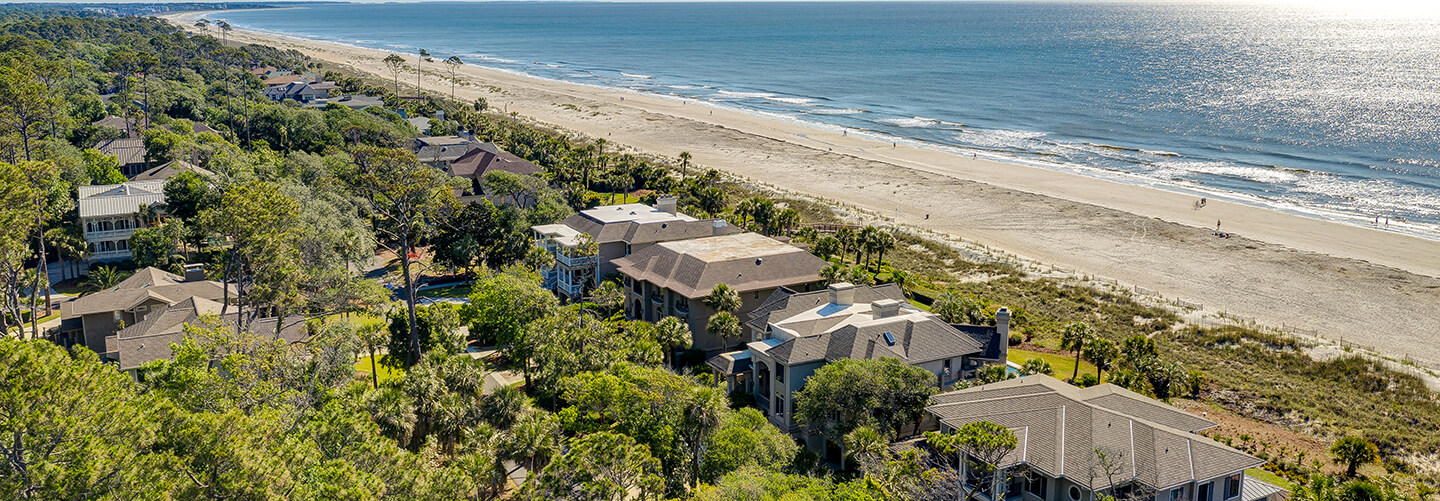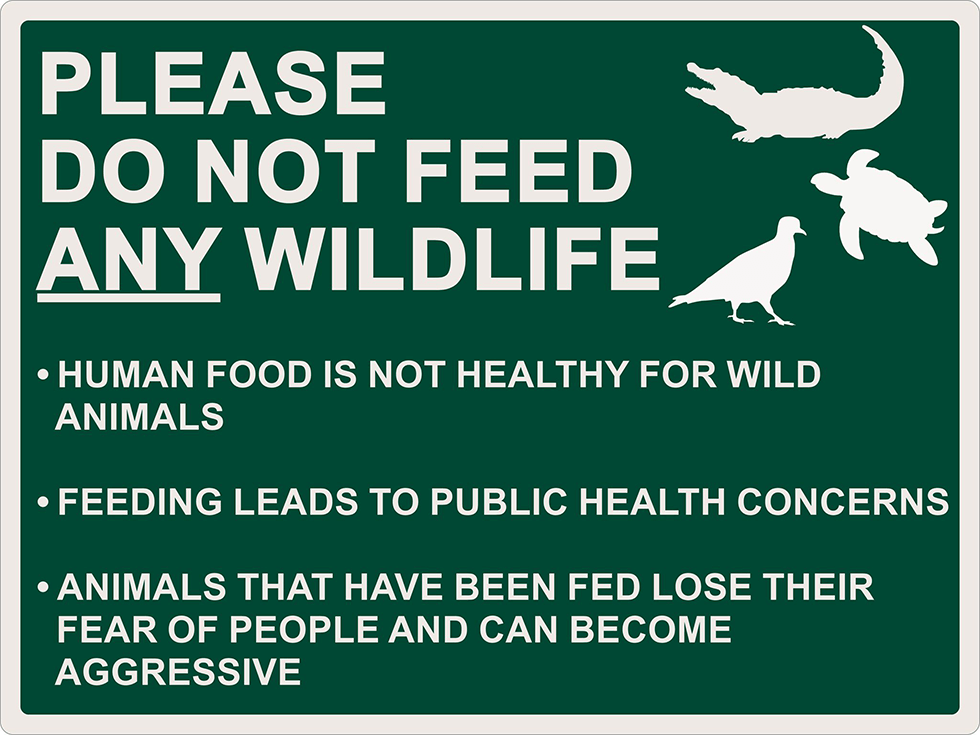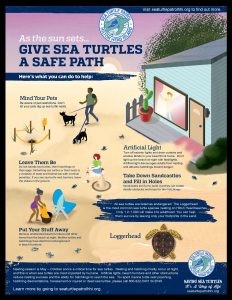
WILDLIFE
We have an abundance of wildlife present in our community. Always use caution near wildlife and near all bodies of water in Palmetto Dunes. If you encounter an alligator in Palmetto Dunes that you believe to be aggressive or used to humans and you have a safety concern, contact Palmetto Dunes Dispatch at 843-785-1120.
- Do not feed any wildlife
- Human food is not healthy for wild animals
- Feeding leads to public health concerns
- Animals used to feeding lose their fear of people and can become aggressive
PDPOA Wildlife Management
Learn about Palmetto Dunes POA’s Wildlife Management Program.

ALLIGATORS
Alligators can grow to a length of 15 feet in the southern coastal region of South Carolina. You should be aware that alligators do indeed pose a threat to people and to pets. They are short tempered and lightning fast—they can outrun humans for 25 yards on land.
Concerns about having negative encounters with alligators can largely be dissolved with common sense and an understanding of alligator behavior. Below are several tips for safety.
- Do not feed alligators. When alligators start associating people with food, they will be more likely to approach. Do not feed ducks, turtles, fish, or any other animals inhabiting water either. This food source attracts alligators.
- Be aware of your surroundings. If you’re in an alligator-friendly habitat—just about any local body of water—be mindful of your environment. If your golf ball lands near an alligator or in a lagoon, do not try to retrieve it. Enjoy alligators only from a safe distance.
- Keep your distance. If you encounter an alligator, walk backwards and back away from it. A safe distance from an adult alligator should be maintained at about 60 feet. If the alligator hisses or lunges at you, you are too close.
- Keep your pets and children away from alligators. Large alligators do not recognize the difference between domestic pets and wild food sources. When hungry, alligators act on their hunting instinct. Do not allow pets or children to swim in, drink, or play at the edge of waters inhabited by alligators. To an alligator, any splash potentially means a food source is in the water.
In their natural, wild state alligators-especially the big ones-tend go out of their way to avoid people, their only natural enemy. But once they become too familiar, alligators lose their fear of humans, necessitating their removal for the safety of everyone concerned. All removed alligators are exterminated per South Carolina State Law. Relocation is illegal due alligators strong homing instincts.
DO NOT FEED ALLIGATORS. DO NOT FEED ANY WILDLIFE IN PALMETTO DUNES.
FEEDING ALLIGATORS IS ILLEGAL IN SOUTH CAROLINA.
Aggressive Alligators- If you encounter an alligator in Palmetto Dunes that you believe to be aggressive or used to humans and you have a safety concern, contact Palmetto Dunes Dispatch at (843) 785-1120.
When we receive a call, a Security officer and third-party wildlife service provider will be dispatched to locate and/or monitor the alligator. We will rely on the recommendation of the wildlife service provider in determining if an alligator should be harvested.
SNAKES
All but four snake species on Hilton Head are non-poisonous. Poisonous snakes in our area include: Southern Copperheads, Eastern Cottonmouths, Eastern Diamondback Rattlesnakes and the Canebrake Rattlesnake. In case of a snake bite, immobilize the wound and tie a loose bandage above the area. Call 911 or send for help immediately.
JELLYFISH
Jellyfish are plentiful in beach swimming areas when the ocean temperature approaches 85 degrees and above. In many cases you will not see the Jellyfish but will feel it if stung. The sting, while not usually serious, is nevertheless painful. Jellyfish that have washed up on the beach should be avoided because some may continue to sting after death. Stings may be treated by washing with soap and water, applying alcohol or meat tenderizer and vaseline. Contact a doctor or call 911 for serious allergic reactions.
BIRDS
In and about its lakes and lagoons, Palmetto Dunes could be called a bird watchers’ paradise. The birds of PD are its most visible and most varied species of wildlife. In residence throughout the year are wading birds such as the Great Blue Heron, Great Egret, White Ibis, Green Heron, and the nocturnal Black Crowned Night-Heron. Circling above the waters one can spot osprey, bald eagles, and a variety of hawks. We also can see brown pelicans as they visit for the winter months. Paddling our waters are many varieties of gregarious and vocal ducks. Sharing the water surface with them (and frequently diving beneath it), one can find the double crested cormorant, and its cousin, the Anhinga. These last two large birds are most commonly spotted with their wings spread out to dry while perched alongside the water.
All of these birds are dependent on the marine life in the lakes and lagoon for their main source of food. Without the marine life, we wouldn’t be able to have the variety and quantity of bird life. The birds prey primarily on shrimp, crabs, eels, and the small offspring of all the lagoon and lake fish species.
Whether you are a bird watcher, fisherman or boater, your continuing enjoyment requires maintenance of and vigilance over our waterways. Abundant bird life is an excellent indicator of our stewardship of the unique waterways of Palmetto Dunes.
FISH
Thriving in the lagoon are also larger food fish for the birds: the Mullet and the Menhaden. These two varieties, in good supply, are not only food fish for wildlife but are unique in that they are vegetarians and filter feeders. Their main sources of food in the lagoon are moss and algae. They are highly effective in keeping the waters of the lagoon clean and clear. In return these fish require good levels of oxygen, stable salinity, and tidal movements of the water supply.
We also have many large or “catching fish” in our waters; mainly, Tarpon, Sea Trout, Redfish, Flounder, Black Drum, Striped Bass, Ladyfish, Large Mouth Bass, and Sunfish. The tiny offspring of these larger fish provide another source of food for our avian species. In order for the marine life and, hence, bird life, to thrive, a high level of water quality is required.
One of the goals of the PDPOA and especially the Lagoon & Lake Advisory Group is striving to ensure that the water quality of our lagoon is maintained. Therefore, we test the water at various points to assess the salinity, oxygenation, and pH level. The periodic lowering of the lagoon level helps us to improve these areas. We usually lower the lagoon once a month (unless a major storm comes or a need arises, such as the work on Bird Island) to enhance the water quality.
DEER
Deer are plentiful on Hilton Head Island. They are most active at dawn and dusk. Please be aware of the deer while driving through the community in the early morning or at night. Deer travel in groups, so if you see one cross the street, there will probably be more to follow.
To keep deer from eating the foliage in your yard, you can plant white-tailed deer deterrent options, which include plant varietals that are not young, smooth, and/or flavorful, rather than harmful substances.
Click here to learn more about our Wildlife Management Program and Deer Spotlight Surveys.
RACCOONS
Raccoons are also common. They will try to get into your trash can if they smell food. Outside trash should be in a container with a raccoon-proof lid locked down. If you are having problems with raccoons, contact Security at (843) 785-1120.
LOGGERHEAD SEA TURTLES
 DOWNLOAD SEA TURTLE AWARENESS FLYER
DOWNLOAD SEA TURTLE AWARENESS FLYER
DOWNLOAD TURTLE FRIENDLY LIGHT BULBS
Loggerhead Sea Turtles are a threatened species and are protected by federal, state, and local laws. Females nest May 1 through August 31 above the high water mark on beaches along Hilton Head. Sea Turtles nest on Hilton Head Island beaches in the darkness to avoid overheating and disturbance. They are distracted by interior and exterior lights from beach front houses.
Do not touch or tamper with the nests. Approximately two months after females lay their eggs; five-inch hatchlings emerge and return to the sea. Please do not pick up the baby turtles and help them to the water. They will eventually make it under their own power. Help from a friendly person confuses their internal navigation system and most that are touched by human hands will die. While survivors will live 100 years or more, less than one percent of the loggerhead Sea Turtles live from nest to ocean. To help protect this fragile species, outdoor lights on all beach front property must be turned off after 10pm from May 1st until October 31st.
Sea turtle hatchlings usually emerge from the nest at night. They orient themselves toward the brightest horizon and dash towards the sea. Visible lights from buildings or streets near the beach disorient the hatchlings, and they wander inland where they are almost certain to die.
The Town of Hilton Head Island requires that lights visible from the beach be shielded or turned off from 10pm to 6am from May 1 to October 31. Any windows facing the beach must also be covered with draperies or shade screens. Please see the attached Turtle Friendly light bulbs that should be used on and in beach facing homes.
- Never disturb a sea turtle nest, a nesting sea turtle or a hatchling.
- If your building is visible from the beach, turn off your outside lights at 10 p.m. from May 1-October 31.
- If any of your interior lights are visible from the beach or cast light on the beach, close blinds or drapes at 10 p.m. or turn them off.
- Never leave beach umbrellas, chairs, or any other beach accessories on the beach overnight.
- If you are digging holes in the beach or building sand castles, please return the sand to its undisturbed state before leaving the beach.
- Place all trash and recyclables in the appropriate receptacles.
- Protect beach vegetation: this helps grow our dunes and stabilize sand and the natural coastline.
- To report light violations please contact Town of Hilton Head Island Code Enforcement Officers weekdays: (843) 341-4643
- To report dead, injured or harassed turtles contact the South Carolina Department of Natural Resources hotline at 1-800-922-5431, day or night and weekends.